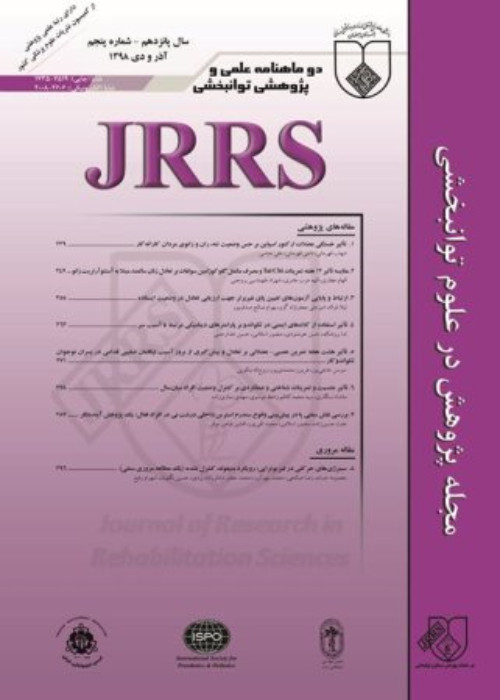The Effect of Low-Error and Full-Error Learning on Bimanual Coordination In Patients with High-Functioning Autism Disorder
Author(s):
Article Type:
Research/Original Article (دارای رتبه معتبر)
Abstract:
Introduction
In many sports movements, and even regular movements, the simultaneous use of both hands results in the successful implementation of motor skills. Considering many problems faced by the patient with autism in learning skills, and their impact on social behaviors, the purpose of this study was to investigate the effect of low-error and full-error learning on bimanual coordination in patients with high-functioning autism disorder.
Materials and Methods
This was a semi-experimental research with pretest-posttest design, and control group. 24 children with high-functioning autism disorder, resulted from with the help of pretest Autism Spectrum Screening Questionnaire (SSRQ) were selected using convenience sampling method, and were homogeneously divided into three groups of low-error learning, full-error learning, and control. The dual coordination pretest was done with the help of the bimanual coordination instrument of the Omide Farda Institute (Tehran, Iran). Then, the training groups did practicing bimanual coordination skills on the same machine in six sessions of 30 minutes. At the end of the sixth session, the posttest of bimanual coordination skills was performed in all groups. Two days later, a retention test was taken from the training groups. The results were analyzed using one way and repeated measures analysis of variance.
Results
There were no significant differences between the groups in pretest (P = 0.643). While in posttest, a significant difference was observed between the practice and control group (P = 0.001). Moreover, there was a significant difference between low-error and full-error learning groups (P = 0.001). The retention test, which was performed after two days of rest, revealed a decrease in performance of full-error group.
Conclusion
According to the results, it is concluded that these individuals are able to improve their bimanual coordination skills, and low-error learning is not only useful in learning, but also has more sustainability than full-error learning. Therefore, it is recommended to use a low-error learning method to teach bimanual coordination skills in patients with high-functioning autism disorder.Keywords:
Language:
Persian
Published:
Journal of Research in Rehabilitation Sciences, Volume:14 Issue: 2, 2018
Pages:
66 to 73
magiran.com/p1977143
دانلود و مطالعه متن این مقاله با یکی از روشهای زیر امکان پذیر است:
اشتراک شخصی
با عضویت و پرداخت آنلاین حق اشتراک یکساله به مبلغ 1,390,000ريال میتوانید 70 عنوان مطلب دانلود کنید!
اشتراک سازمانی
به کتابخانه دانشگاه یا محل کار خود پیشنهاد کنید تا اشتراک سازمانی این پایگاه را برای دسترسی نامحدود همه کاربران به متن مطالب تهیه نمایند!
توجه!
- حق عضویت دریافتی صرف حمایت از نشریات عضو و نگهداری، تکمیل و توسعه مگیران میشود.
- پرداخت حق اشتراک و دانلود مقالات اجازه بازنشر آن در سایر رسانههای چاپی و دیجیتال را به کاربر نمیدهد.
In order to view content subscription is required
Personal subscription
Subscribe magiran.com for 70 € euros via PayPal and download 70 articles during a year.
Organization subscription
Please contact us to subscribe your university or library for unlimited access!



